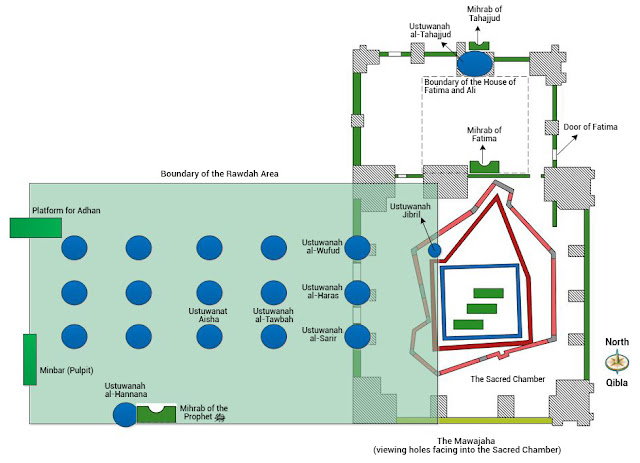People with poor social skills display these 9 behaviors (without realizing it)
Navigating social interactions isn’t always a walk in the park. Sometimes, poor social skills can hinder communication, and the worst part is, we may not even realize it.
Understanding social cues and behaviors can be a challenge for many. Often, we may find ourselves acting in ways that could be perceived negatively by others without our knowledge.
Being aware of these behaviors is the first step toward improving our social skills. And believe me, there are certain signs that give away poor social skills pretty evidently.
Ready for a quick rundown?
Here are nine behaviors often displayed by people with poor social skills without even realizing it.
1) Over sharing
Now, we’ve all heard the saying “sharing is caring”, right? But in social contexts, there’s such a thing as sharing too much.
People with poor social skills often have a tendency to overshare. They might divulge personal or sensitive information at inappropriate times, or continue speaking long after it has become uncomfortable for others.
While they may think they are just being open and honest, this behavior can make others around them feel uneasy. It can disrupt the flow of conversation and even lead to awkward silences.
There’s a time and place for everything, and that includes sharing personal stories or information. If you find yourself guilty of oversharing, it might be a sign to work on your social skills.
But don’t worry – recognizing the issue is the first step towards improvement.
2) Poor eye contact
Talking about personal experiences, I remember a time when I was at a networking event. I found myself in a conversation with an individual who kept looking around the room while I was speaking.
This person hardly made any eye contact with me. It was as if they were more interested in who else was in the room, rather than our conversation. I can’t deny that this made me feel quite unimportant and ignored.
Poor eye contact can be a clear sign of weak social skills. It can convey disinterest or even disrespect, even if that’s not the intention.
Whether you’re at a networking event or just having a chat with a friend, don’t forget to maintain appropriate eye contact. It shows the other person that you’re genuinely interested and engaged in the conversation.
3) Interrupting others
There is a delicate balance in conversation between speaking and listening. People with poor social skills often struggle with this balance and have a tendency to interrupt others while they’re speaking.
Did you know that in some cultures, interjecting while someone else is speaking is considered highly disrespectful? It can give the impression that you’re not interested in what they’re saying, or that you’re only focused on your own thoughts and ideas.
When you find yourself eager to jump into the conversation, take a moment. Let the other person finish their point. It’s a small change that can make a big difference in how your social skills are perceived.
4) Not recognizing non-verbal cues
Communication isn’t just about words. It’s also about understanding body language and other non-verbal cues.
People with poor social skills often struggle to pick up on these signals. They might not notice when someone is uncomfortable, bored, or wanting to change the subject.
For example, if someone is constantly checking their watch, it could mean they’re in a hurry or not engaged in the conversation. Ignoring these cues can lead to misunderstandings and missed social opportunities.
Consider paying more attention to non-verbal signals in your interactions. It could greatly improve your social skills and how others perceive you.
5) Domination of conversation
Imagine being stuck in a conversation where the other person is doing all the talking. Not the best experience, right?
People with poor social skills often dominate the conversation, leaving little room for others to express their thoughts or opinions. They might continuously steer the conversation back to themselves or their interests.
A good conversation is like a tennis match – it requires a good back-and-forth. If you find yourself hogging the limelight, it might be time to step back and let others have a turn. After all, communication is a two-way street.
6) Lack of empathy
Empathy – the ability to understand and share the feelings of others – is a fundamental part of social interaction.
Those with poor social skills may struggle with showing empathy. They might fail to respond appropriately to others’ emotions or may seem indifferent to what others are going through.
I’ve seen how this can create a distance between people, making it hard for meaningful connections to form. It’s heartbreaking, really, because everyone wants to feel understood and valued.
The good news? Empathy can be learned and nurtured. So, if you struggle with this, take heart. With time and practice, you can improve your ability to connect with others on a deeper level.
7) Difficulty with small talk
I’ll be honest, I used to dread small talk. It felt awkward and forced, like a dance I didn’t know the steps to. I’d struggle to come up with things to say and would often resort to silence.
This is a common trait among those with poor social skills. They may find small talk uncomfortable and challenging, and often avoid it altogether.
But here’s what I’ve learned: small talk is like a doorway to deeper connections. It’s a way to break the ice and start getting to know someone. With practice and patience, it can become much less daunting. So, don’t shy away from it – embrace it as an opportunity to connect with others.
8) Inability to accept criticism
Feedback, especially the constructive kind, can be hard to swallow. But it’s often necessary for personal growth and development.
People with poor social skills often have a hard time accepting criticism. They may react defensively, argue, or shut down completely when faced with feedback, even when it’s meant to help them improve.
But remember, criticism isn’t personal. It’s an opportunity to learn and grow. So, the next time you receive feedback, consider responding with gratitude and openness. It might just make a world of difference in your interactions with others.
9) Neglecting to listen
Listening is perhaps the most crucial social skill of all. It’s the foundation of effective communication and meaningful relationships.
Unfortunately, those with poor social skills often fail to listen actively. They may be mentally preparing their response while the other person is still speaking or might be disengaged from the conversation entirely.
When we truly listen, we show others that we value their thoughts and feelings.
When you find yourself in a conversation, take a moment to really hear what the other person is saying. It might just transform your social interactions in ways you never thought possible.
At the end of the day: It’s a learning process
We often forget that human behavior is a complex tapestry, woven together by a multitude of factors. For some, social skills come naturally. For others, it’s a steep learning curve.
One key ingredient in this mix is the hormone oxytocin, known as the “social hormone”. It plays a crucial role in bonding and building trust. Research suggests that people with lower levels of oxytocin might struggle more with social interactions.
Whether you recognize yourself in some of these behaviors or see them in others, remember that improvement is possible. It takes time, patience, and a willingness to learn and adapt.
So next time you’re in a social situation, take a moment to observe, listen, and engage. You might just find that you’re better at this social thing than you thought. And even if you stumble along the way, that’s okay too. After all, we’re all just figuring it out as we go along.








.jpeg)